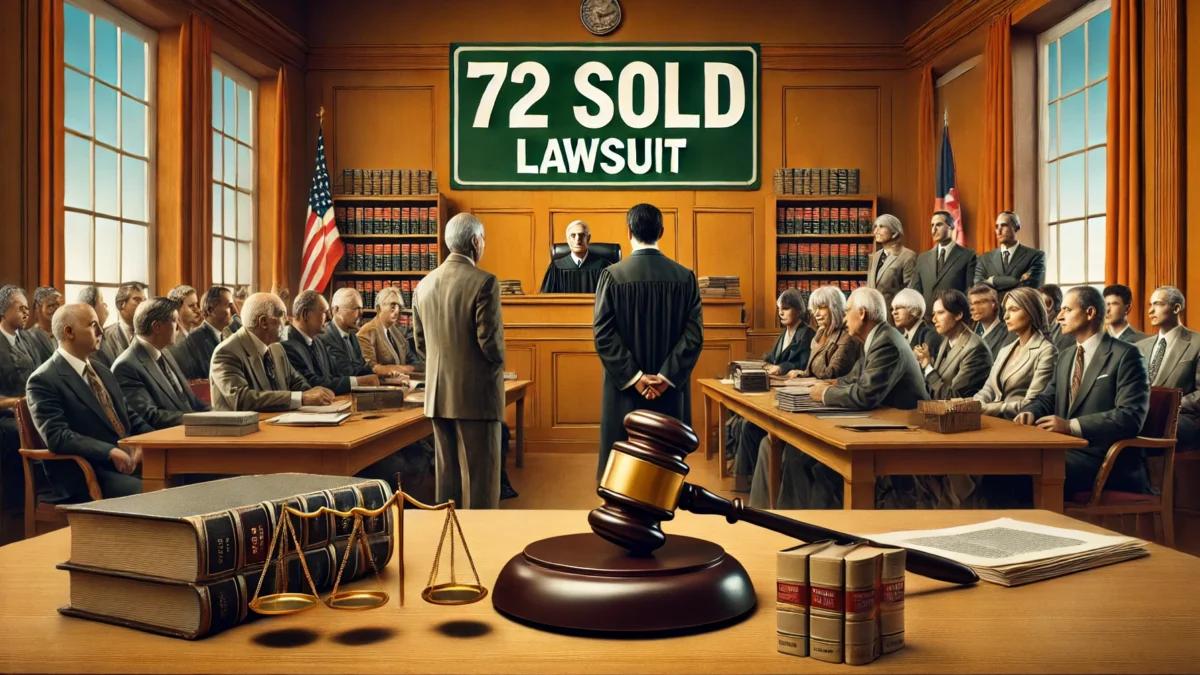The real estate industry has been closely monitoring the developments surrounding 72 Sold, a company renowned for its expedited home-selling model. Recent legal challenges have raised concerns about the company’s practices and their impact on consumers and the broader market. This article provides a comprehensive overview of the 72 Sold lawsuit, detailing the allegations, key events, and potential implications for stakeholders.
Background of 72 Sold
Founded in 2018 by Greg Hague, 72 Sold is a Scottsdale, Arizona-based real estate company that introduced an innovative approach to home selling. The company claims to streamline the process, enabling homeowners to sell their properties within a compressed timeline, often as short as eight days. This model contrasts with traditional real estate methods, which can involve prolonged listing periods and extended negotiations.
Key Allegations Against 72 Sold
The lawsuit against 72 Sold encompasses several serious allegations:
- Misleading Advertising: Plaintiffs assert that 72 Sold’s marketing materials overstate the speed and profitability of their home-selling process, leading to unrealistic expectations among clients.
- Breach of Contract: Some homeowners allege that the company failed to honor contractual terms, particularly concerning sale timelines and financial outcomes.
- Unfair Competition: Traditional real estate agents claim that 72 Sold’s business practices disrupt standard industry operations, creating an uneven playing field.
- Lack of Transparency: Accusations include insufficient disclosure of the risks and limitations associated with 72 Sold’s services, potentially misleading consumers.
Timeline of Events
- Early 2023: Homeowners and real estate professionals begin voicing concerns about 72 Sold’s business practices, citing discrepancies between advertised claims and actual outcomes.
- March 2023: A group of plaintiffs files a lawsuit against 72 Sold, alleging misleading advertising and breach of contract.
- April 2023: The company issues a public statement denying the allegations and expresses confidence in its legal position.
- June 2023: Pre-trial proceedings commence, with both parties presenting initial evidence and witness lists.
- August 2023: Settlement discussions are initiated but fail to produce an agreement, leading to a scheduled trial date.
- October 2023: The trial begins, drawing significant media attention due to the potential implications for the real estate industry.
- December 2023: The court reaches a verdict, the details of which are pending public release.

Implications for Homeowners
The lawsuit has significant ramifications for homeowners:
- Due Diligence: The case underscores the importance of thoroughly vetting real estate services and understanding contractual obligations before engagement.
- Market Perception: Homeowners may become more cautious of non-traditional selling models, potentially reverting to conventional methods.
Impact on Real Estate Professionals
For real estate agents and brokers:
- Industry Practices: The lawsuit may prompt a reevaluation of marketing strategies to ensure compliance with advertising standards and consumer protection laws.
- Competitive Landscape: Traditional agents might experience shifts in client trust and market dynamics, influencing their operational approaches.
Broader Industry Implications
The outcome of the 72 Sold lawsuit could lead to:
- Regulatory Scrutiny: Increased oversight of real estate marketing practices to safeguard consumer interests.
- Legal Precedents: Establishment of case law affecting future real estate transactions and business models.
Company’s Response
In response to the allegations, 72 Sold has:
- Public Statements: Denied all claims, asserting adherence to ethical standards and transparency in operations.
- Legal Defense: Assembled a legal team to contest the lawsuit, aiming to protect its business model and reputation.
Potential Outcomes
The lawsuit could result in:
- Financial Penalties: If found liable, 72 Sold may face substantial fines and be required to compensate affected clients.
- Operational Changes: The company might need to modify its business practices to align with legal and regulatory requirements.
Conclusion
The 72 Sold lawsuit serves as a critical examination of innovative real estate models and their alignment with consumer protection standards. As the case progresses, its outcomes will likely influence industry practices, regulatory frameworks, and consumer trust in alternative home-selling methods.
Frequently Asked Questions
What is the 72 Sold lawsuit about?
The lawsuit involves allegations against 72 Sold for misleading advertising, breach of contract, unfair competition, and lack of transparency in their home-selling services.
Who are the plaintiffs in the case?
The plaintiffs include homeowners who used 72 Sold’s services and real estate professionals affected by the company’s business practices.
What are the potential consequences for 72 Sold?
Potential outcomes include financial penalties, mandated changes to business operations, and reputational damage.
How does this lawsuit affect homeowners?
Homeowners are encouraged to conduct thorough due diligence when selecting real estate services and to be aware of the terms and conditions involved.
What impact does the lawsuit have on the real estate industry?
The case may lead to increased regulatory scrutiny and set legal precedents affecting future real estate business models and marketing practices.
How has 72 Sold responded to the allegations?
72 Sold has denied the allegations, asserting that they operate ethically and transparently, and is actively defending itself in court.

